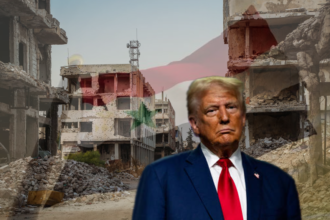Years of violence have enveloped Myanmar, particularly following the military takeover in 2021. When the nation suffered a catastrophic 7.7-magnitude earthquake that claimed over 3,700 lives in March 2025, things got worse. With this catastrophe, the junta of Myanmar announced a truce on April 2, 2025, therefore providing some hope. Nevertheless, despite this agreement, continued violations of the ceasefire by Myanmar have badly impacted people and extended the suffering of the nation.
We shall explore in this post what has been happening, why these violations are important to grasp, and what has to be done to stop them. We will also look at how the conflict affects common people and discuss how the international community may help to halt this bloodshed.
What preceded the Ceasefire Agreement?
Following one of the most catastrophic natural disasters in Myanmar’s history, the military regime there declared a truce in April 2025. With thousands dead and millions displaced, the earthquake presented an uncommon chance for peace. Many believed the truce would let displaced people go back to their homes and create room for desperately needed humanitarian relief to get to people in need.
The truce was temporary, though. Reports of the military junta breaching the terms of the truce started to surface just days after the proclamation. The military carried on attacking civilian areas and opposition groups instead of stopping their activities. As aircraft, artillery shelling, and drone assaults grew more frequent, Myanmar ceasefire violations became a terrible reality. This flagrant disrespect for peace rapidly destroyed all prospects for long-lasting peace, therefore trapping the people of Myanmar in a vicious cycle of conflict.
The continuous violations highlight the military’s strong will to keep control, independent of the cost in human life, even if the junta declares it will stop all hostilities. Originally hoping the ceasefire would bring about peace, the world community soon realized this was only a tactical move rather than a sincere will to end the war. Read another article UK Launches Appeal for Myanmar
How are cease-fire violations affecting Myanmar's population?
For the civilian population, violations of the Myanmar ceasefire have terrible results. After years of displacement, residents like Mala and her husband Khala returned to their hometown, Pekin Coco, and found their safety promised broken. After the earthquake, the family hoped they might reconstruct their life, but their expectations were dashed when the military started artillery strikes on their hamlet.
Mala remembered, “We were in front of the house when the shells dropped. Khala lingered behind even as we hurried to the rear. He perished where the cannon fired. Khala, a husband and father, passed away in an area he thought to be safe at that very moment. The bombings persisted even as people worked to reconstruct their houses and way of life.
Seven months pregnant at the time, Mala was left to look after her son, Zoe, who was heartbroken over the death of his father. Families like Mala’s suffer even with the alleged truce as they flee the bloodshed. With no area safe from attack, the junta’s activities have driven people into a continual state of anxiety.
What part do rebel groups play in the cease-fire?
Although the military regime of Myanmar has regularly broken the truce, numerous opposition groups—including the Karenni Nationalities Defence Force (KNDF)—have mainly followed the pact. Comprising largely of ethnic minorities and young militants, these groups have been battling for years to release Myanmar from military control. Having experienced innumerable military attacks and crimes, their mistrust of the junta’s dedication to peace is clear-cut.
The 23-year-old KNDF commander Stefano underlined that the truce was never a consistent cause of hope. He said, “We never thought the military junta credible. Their acts show they have no intention of abating the bloodshed.” The statements of Stefano capture the common attitude of many of the opposition members. They stayed out of aggressive operations, but they are always ready to protect themselves should an attack take place.
Emphasizing that they will only trust a truce if the military junta is no longer in charge, resistance factions believe that the activities of the junta directly jeopardize their existence and future, driving this resolve, even violations of the ceasefire in Myanmar. For them, peace is not only a question of postponing military operations momentarily but of totally overturning the military dictatorship.
What Has to Be Done to Stop the Violations?
The continuous violations of the Myanmar ceasefire show how urgently world action is needed. The total disdain of the junta for peace agreements demands a more aggressive response from the world community. Steps required to compel the military to stop its abuses and participate in real peace negotiations are diplomatic pressure, sanctions, and backing for opposition groups.
The world community has, first and foremost responsibility for making the junta answerable for its deeds. This can involve pressing the junta to stop using aggressive methods as well as punishing military and military-related companies of Myanmar. Working to guarantee that relief gets to people most impacted by the violence is the responsibility of the United Nations and other humanitarian organizations.
Notwithstanding the difficulties, humanitarian organizations—including the UN—have kept on their job helping people in need. Still, the continuous violence usually frustrates their attempts. More can be done to guarantee the safe passage of relief; meanwhile, the world community has to keep pushing for civilian safety.
One must realize that violations of the Myanmar ceasefire are not one-time events. They fit a more general pattern of junta behavior whereby peace or reconciliation displays minimal appeal. The crisis will probably on, and more people will suffer until the junta answers for these transgressions.
In essence, the road to peace calls for action.
The cycle of Myanmar ceasefire violations has to stop, but only if constant pressure on the military regime results. International players have to unite to hold the military responsible for its activities, assist individuals impacted by the conflict, and advocate for real peace negotiations. The response of the world community has to be forceful and relentless since the aggressiveness of the junta cannot be tolerated by the people of Myanmar anymore.
The people of Myanmar will live in fear until actual peace is attained. Families like Mala’s, who are trying to survive following both the earthquake and continuous violence, merit protection and hope. The first step toward stopping the bloodshed is a real ceasefire that both parties honor. That promises something worth fighting for for the people of Myanmar.








